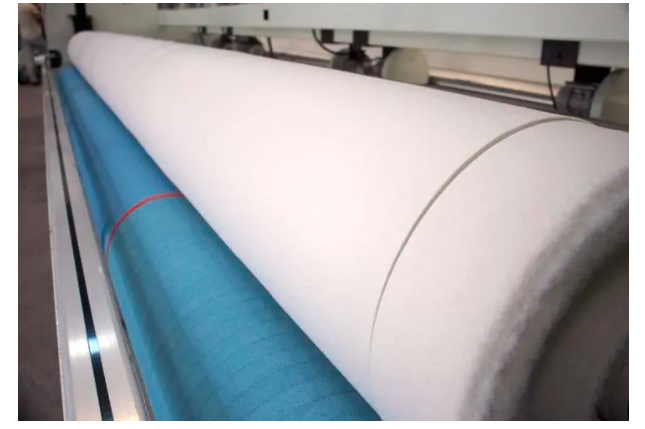- Understanding the Role of Geomembrane Liners in Waste Management
- Innovations in Geomembrane Liners for Water Management
- Geomembrane Liners: A Comprehensive Guide
- The Future of Geomembrane Liners in Civil Engineering
- Geomembrane Liners: Enhancing Landfill Stability
Manager:
WhatsApp:+86 177 0135 2670
Tel:+86 177 0135 2670
Email:marketing@okorder.com
Address:3rd Floor, No.2 Building, No.1 Sanlihe Road
Modern Construction and Non-Woven Geotextile Drainage Fabric: A Versatile Combination
There is a fabric in modern construction that can be considered as versatile just as it is essential. That fabric is the nonwoven geotextile drainage fabric. The unsung hero of the building world is probably best exemplified by the non-woven geotextile drainage fabric which demonstrates how humans are able to innovate in the field of building, joining together all pieces of our infrastructural puzzle as we have just begun to understand.
Non-woven Geotextiles Unseen Protector
The non woven geotextile drainage fabric is not only a material; it’s a solution for soil erosion, water filtration, and structural stability during construction projects. It consists of polypropylene or polyester thus being light but very strong with high resistance against UV radiation, temperature extremes and chemical degradation. Engineers and Architects prefer this resiliency more than any other characteristic.

Science Filtration: Breathable Barrier
Geotextiles that breath are those made up of Non-woven fabrics. They allow water to permeate while preventing passage of soil particles. This double action plays an important role specifically in slope protection where it stabilizes the topography thus curbing soil erosion. Its ability to work as a filter is more than just a feature; it saves lives in civil engineering.
Reinforcement & Separation Strength In Layers
It acts like an unspeaking soldier when dealing with reinforcement matters if we talk about non-woven geotextile fabric. This strengthens the soil by increasing its bearing capacity hence avoiding deformation. Within road construction, this serves as a separator keeping different material layers separate from one other without mixing them up. This separation helps preserve the structural integrity on roads or railways such other infrastructure projects.
Weaving Inspiration: Texoversum’s A Fabric Of Innovation
As much as Texoversum does not involve nonwoven geotextiles directly, it is an inspiration when it comes to weaving of the textile methods in architecture. The project’s woven carbon and glass fiber facade is a modern engineering wonder that demonstrates how design principles for textiles can be used to create something beautiful but also functional. Subsequent architectural designs could incorporate non-geotextile fibers.
Geotextiles And Climate Change Affecting Our Built Heritage
Built heritage faces unprecedented challenges as we grapple with the impacts of climate change. Adaptation measures are called out by Built Heritage special issue to protect structures from extreme weather conditions. For erosion control and drainage solutions which contribute towards conservation of our architectural gems, this is where non-woven geotextile drainage fabric becomes important.
ASTM E165/E165M-2023: The Standard Of Excellence
Quality and reliability are not mere phrases within the construction industry; rather, they are cast in stone—fabric actually. ASTM E165/E165M-2023 is an example of such a standard although it does not deal directly with non-woven geotextile covers. This standard exemplifies that each meterage material including our most favorite geotextile must aspire to the highest quality benchmarks.
A Personal Reflection: The Future We Weave
When I think about this world and the role of geotextile fabrics that are not woven and used for drainage purposes, I am overwhelmed by a sense of wonder. This is no mere industrial product; it is a representation of human effort, our relentless desire to make, construct and preserve. In this textile, each thread tells the story of invention; it captures resilience and guarantees a brighter future.
To sum up, non-woven geotextile drainage fabric is more than just some material but an account of man’s imagination as well as his ecological preservation. Therefore let us continue to explore its possibilities with all the passion and reverence the subject deserves because it is not just a fabric we weave but a heritage we leave.
- Previous:The Versatile World of Geotextile Fabric Roll Sizes: A Deep Dive into Construction's Unsung Heroes
- Next:The Unfolding Saga of Geotextile Tubes: A Journey Through Innovation and Utility






